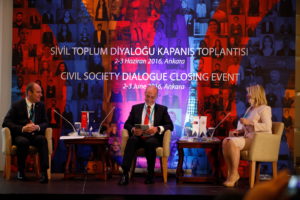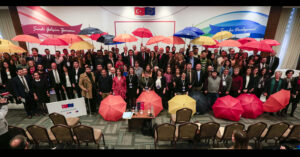
Technical Assistance for Implementation of Civil Society Dialogue and Civil Society Support Programmes (TR2015/DG/01/A5-01/001)
The overall aim of the project is to increase bilateral exchanges and cooperation between CSOs in Turkey and the EU at local, regional and national levels, to promote awareness raising initiatives on importance and benefits of membership of Turkey to the EU within Turkey and EU and on

Technical Assistance for the Promotion of Civil Society Dialogue between EU and Turkey
Turkey’s European Union (EU) accession negotiations needed to eliminate the existing prejudices and suspicions between the EU and Turkey, and it needed to take an adequate step to strengthen the social and cultural dialogue between the two sides. Therefore, the project aimed to enhance contacts and the mutual

Technical Assistance to Implementation of Civil Society Support Programme
The overall objective of the project is to support the development of civil society through more active democratic participation in policy and decision making processes and by promoting a culture of fundamental rights and dialogue.

Technical Assistance for EU-Turkey Anatolian Archaeology and Cultural Heritage Institute
The project is intended to improve intercultural dialogue between Turkey and the EU by protecting and promoting items of common cultural heritage and by strengthening civil society dialogue on such matters. It will improve access to the archaeological heritage and historical works of ancient Anatolian civilizations by identifying,

Technical Assistance for Promoting Women’s Employment in Turkey
The employability of women has been a challenging issue in Turkey for decades. The labour market of women needs to be improved in terms of the existing capacity to design, develop and implement policies to attract and retain more people in employment, particularly by increasing the participation of

Technical Assistance for Implementation of Human Resources Development Operational Programme (HRD OP 5.1)
There was a need regarding the implementation of the HRD OP for improving the coordination and control of HRD OP, and by assisting the Operating Structure and relevant institutions in the different programming, monitoring, evaluation and implementing tasks. Within this context of the project, the components were aiming

